many sources note that Tivadar Puskás invented the telephone exchange. In 1908, Edison also wrote on a portrait that the telephone exchange had been the idea of Tivadar Puskás. However, the mechanism itself did not have to be invented separately for the telephone, as a very similar device already existed at that time, only for telegraph lines.
The fact that the same solution could be applied to telephone lines was probably the idea of Tivadar Puskás, who was working as an employee of Edison at the time. The patent for the telephone exchange was filed in the name of Charles Scribner.
The first telephone exchange started operating in Boston in 1877, and soon after, it appeared in Europe, as Puskás – on behalf of Edison – also built one in 1878 in Paris.
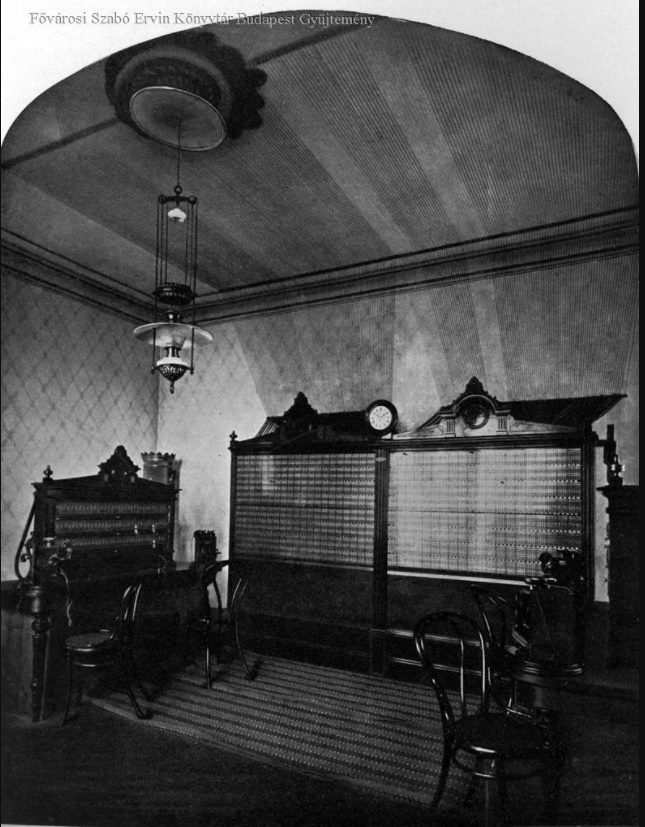
The first telephone exchange in Budapest was at 10 Fürdő Street (now József Attila Street) (Source: FSZEK, Budapest Collection)
The phone was tested in Budapest as early as 1877, and the Fővárosi Lapok reported on the experiment on 29 November 1877:
“The telephone, this telephonic-device was trailled on Tuesday night, in the postal palace by János Takács, Director General of Telegraphy and several officials. They had four telephones at their disposal and they tried to talk from a room below to another on the third floor, one hundred and eighty meters apart. An article and the "Szózat" were read into the device, and all this was well heard on the third floor by the secretary Sztupka, who was listening there."
The telephone was popularized to prospective subscribers by Tivadar Puskás and his brother Ferenc Puskás by building a telephone in 1879 in a house on Gyöngytyúk Street between the second floor and the ground floor, which the general public could view.
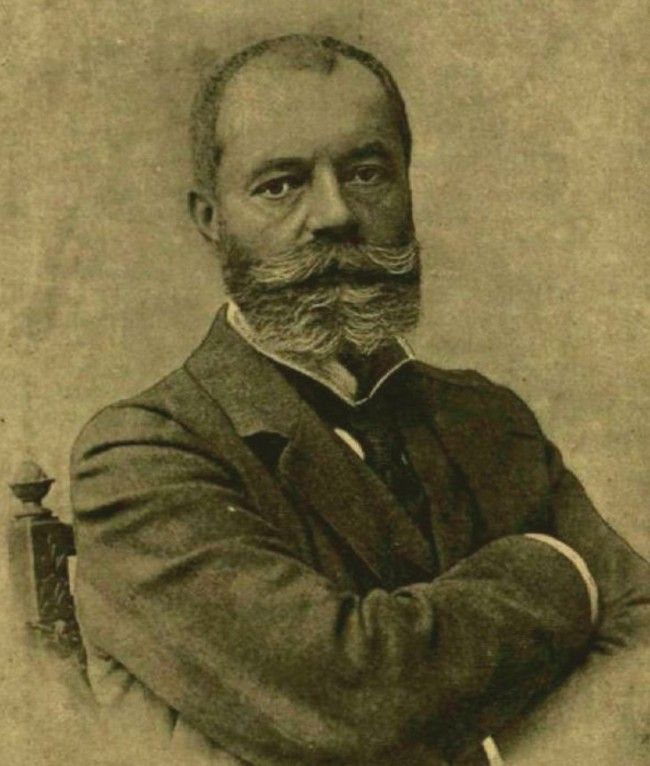
Tivadar Puskás; photo by Károly Koller (Source: Vasárnapi Újság)
One of the first subscribers was the newspaper Pesti Hírlap, which communicated this fact – and the news of the establishment of the telephone exchange – to its readers on 2 February 1881:
"(The first telephone in Budapest.) The Puskás brothers are working hard to acquire the necessary licenses to run the various telephone lines, while their American workers divert all the wires from the reinforced porcelain bell between the windows of the central office in Fürdő Street to the ministries, offices, houses of lords and representatives, theaters, savings banks, merchants and private apartments. A lot of water will flow down the Danube until they are finished. However, the operation of the telephone network on the lines that will be completed will start on 1 May. Our readers will surely be interested in the fact that the very first telephone, which was installed in Budapest (except for the central office and the director's apartment), was set up between the large hall of our editorial office and the editor's apartment on Kalap Street. The first site of the company with a great future is therefore in the service of "Pesti Hírlap". "
The telephone exchange started operating on 1 May 1881, at 10 Fürdő, today József Attila Street, with only 25 subscribers.
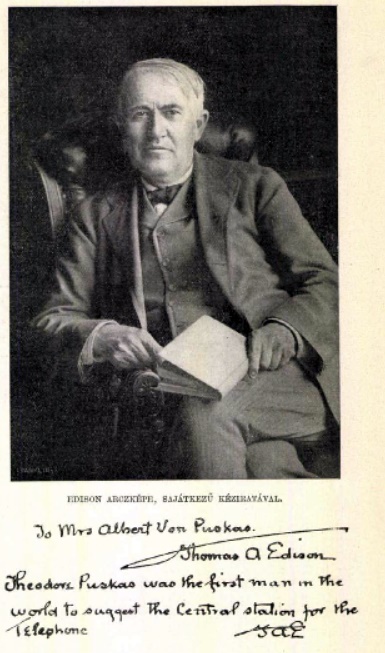
Edison's signed picture stating that Puskás had the idea for the telephone exchange (Source: Vasárnapi Ujság, May 24, 1908)
The centre was able to serve a total of 200 subscribers. At the time, phones worked with the caller picking up the device and asking for the called party from the telephone exchange.
In the first period, while there were relatively few subscribers, it was enough to say the names of the residents at the requested station, not even a number, as the telephone operators knew who the subscribers were. Telephone numbers – then only four digits – were introduced in Budapest in 1901, when there were 5,300 subscribers.
Not anybody could be a telephone operator; applicants had to have a letter of recommendation from two families of the nobility. The first Hungarian telephone lady was Júlia Matkovics, who learned how to use the telephone from Tivadar Puskás.
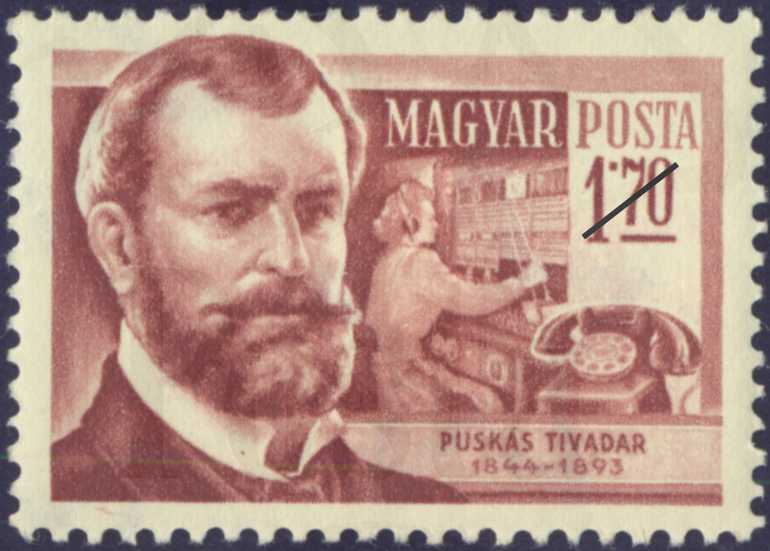
Tivadar Puskás and the telephone exchange on a stamp (Source: Magyar Posta- és Illetékbélyeg Katalógus [Hungarian Post and Duty Stamp Catalogue])
However, the telephone lines were not welcomed by everyone. Some homeowners wanted to collect a fee for the wires. Nevertheless, the authorities of the Capital considered the spread of the network important, so in their decision from 28 April 1881, they stated:
"(…) The Budapest Council fully declares that the telephone network is such a purposeful and practically important means of transport as the post office or telegraph and such a public benefit that its wider spread is in the interest of the whole community of the capital, because it serves not only private but state and administrative interests. The Budapest Council shall ensure that the telephone network lines are constructed as far as possible without violating any public or private interests, and since tieing the wiring to the facades of the houses will not cause any trouble or damage to the buildings, the Budapest Council calls on the homeowners of the capital not to hinder the fixing of holders on their homes, but rather to support and promote the spread of this institution of public interest and benefit. "
The Budapest telephone exchange was the starting point for domestic telephony and one of the strangest and most ingenious inventors in the world. Nikola Tesla (1856-1943) got his first job in the telephone exchange of the Hungarian capital. The Serbian physicist, engineer and inventor later travelled to the United States with the recommendation of Tivadar Puskás in his pocket.
Telephony became more and more popular. Ferenc Puskás received the right to install telephone exchanges in the whole monarchy from Edison, so soon, the new equipment appeared in other big cities.
.jpg)
17–19 Horváth Mihály Square. International Switching Room of the Local Telephone Directorate in 1949. (Source: Fortepan / No.: 32872)
Within a year, two more substations had to be built in Budapest. The first Budapest telephone directory, published on 1 February 1882, contained the addresses and names of 238 subscribers. The telephone subscription was 180 HUF for one year, and one did not have to pay separately for making phone calls, nor did they measure the length of the conversations.
Based on the telephone network and the telephone exchange, Tivadar Puskás's great invention, the Telephone Herald, was born. This can be considered the predecessor of the radio.
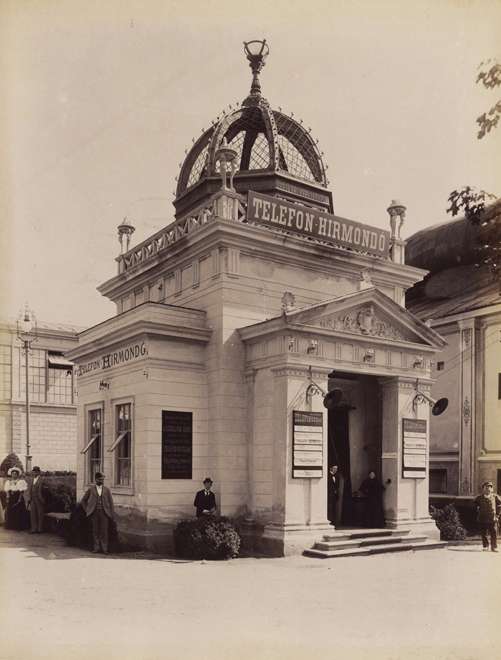
The Pavilion of the Telephone Herald at the Millennium Exhibition in 1896 (Source: FSZEK, Budapest Collection)
Allegedly, as Edison claimed, there was another important thing to come from Puskás in telephony, namely “Halló?" ("Hello?", Hungarians answer the phone with this word), which, according to legend, comes from the Hungarian word “hallom” (I hear)… In any case, “halló?” is considered a foreign word by Hungarian linguists.
Cover photo: Telephone exchange desk through Inteurba from the first Budapest telephone exchange (Photo: FSZEK, Budapest Collection)

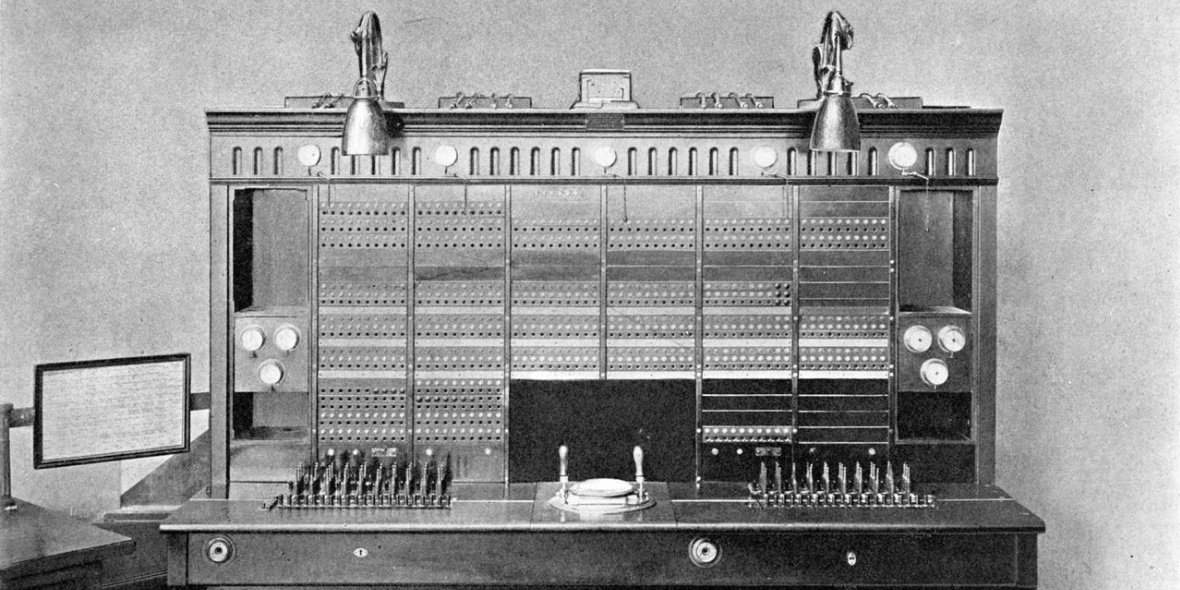

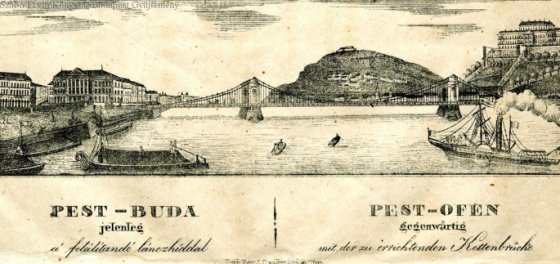
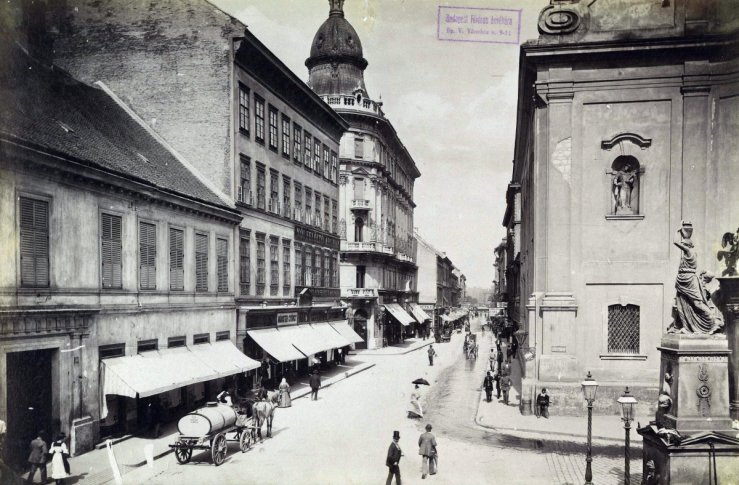
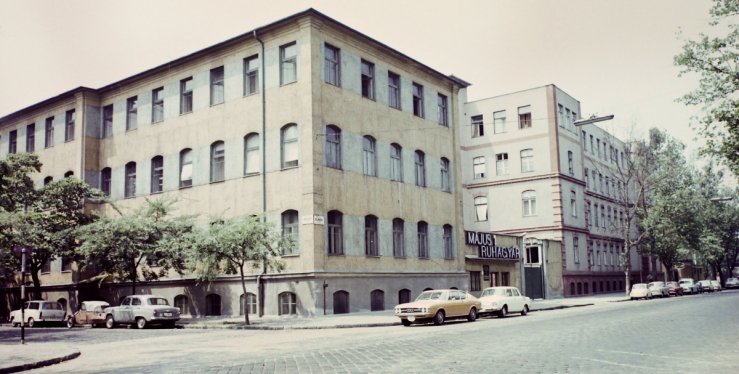
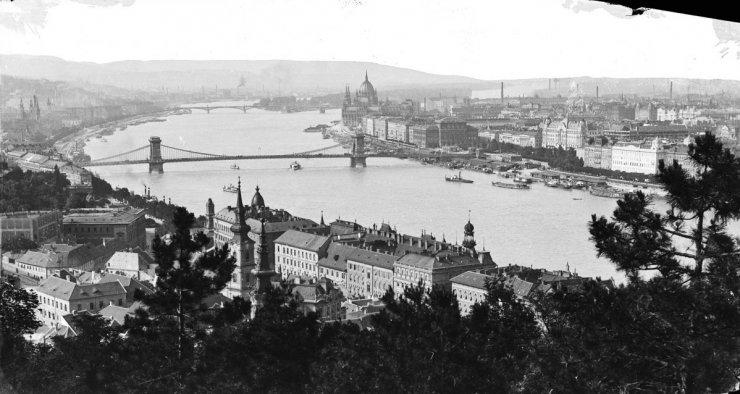
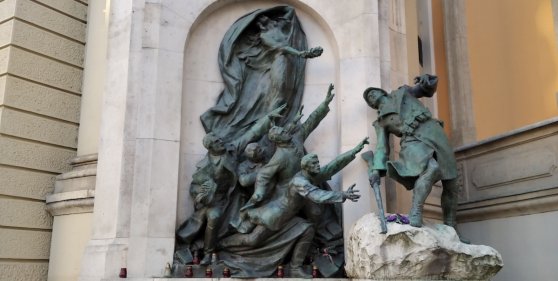
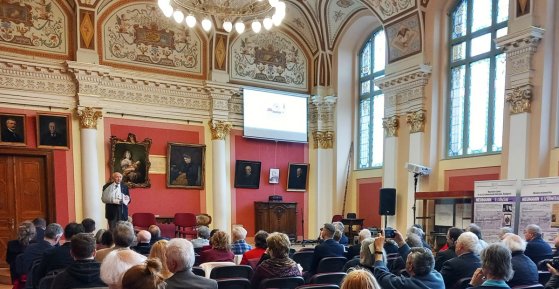
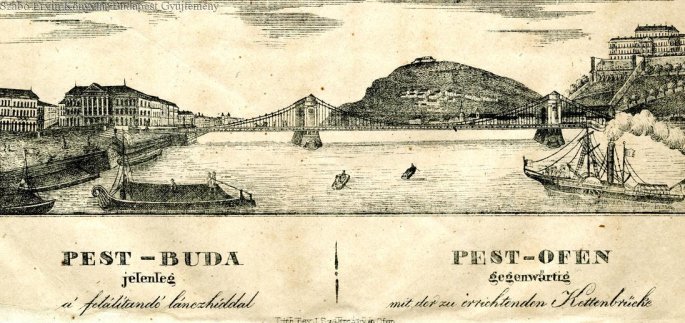
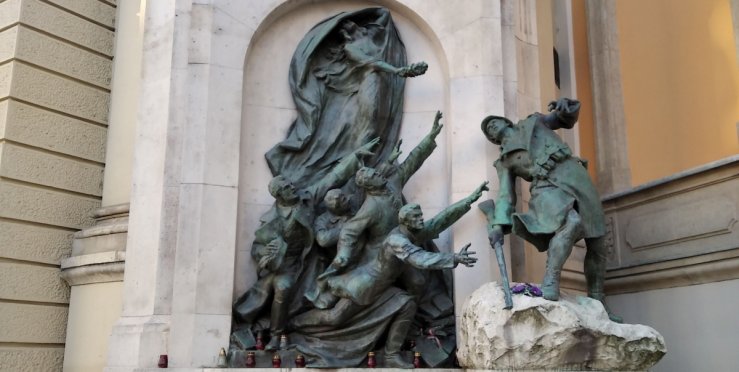
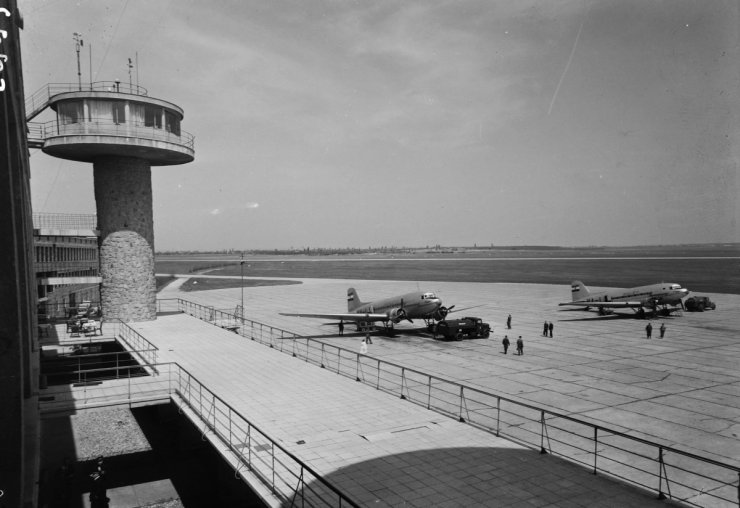
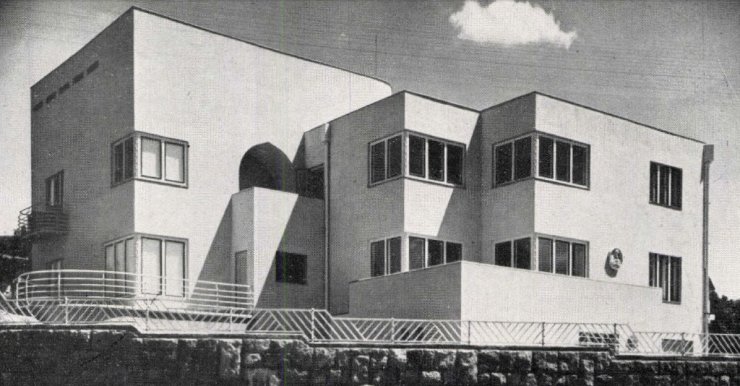
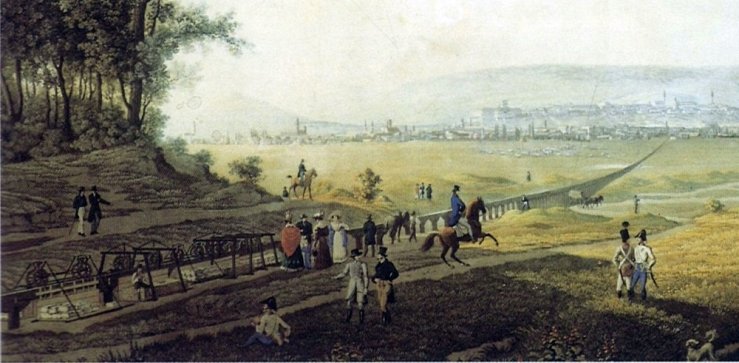
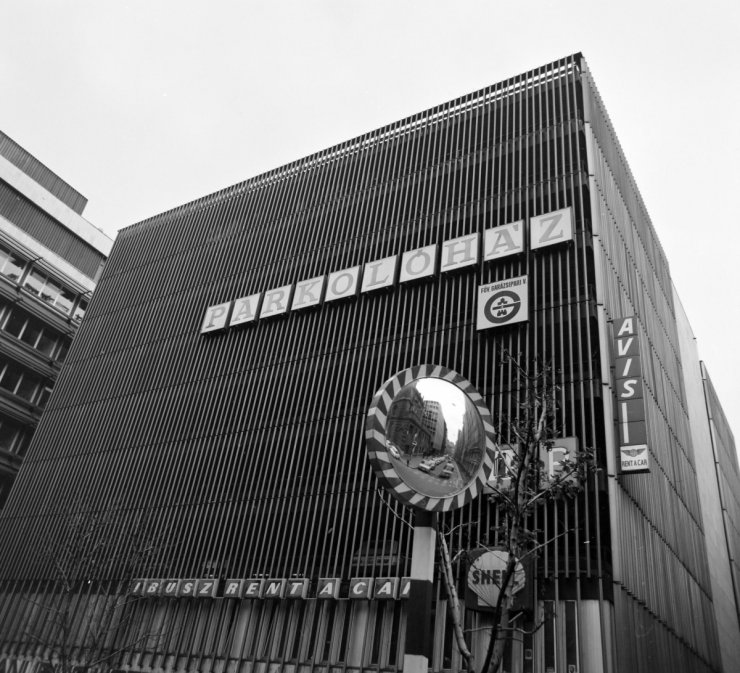

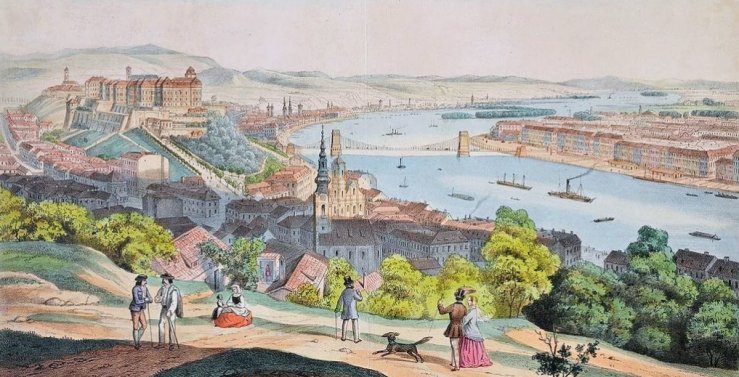
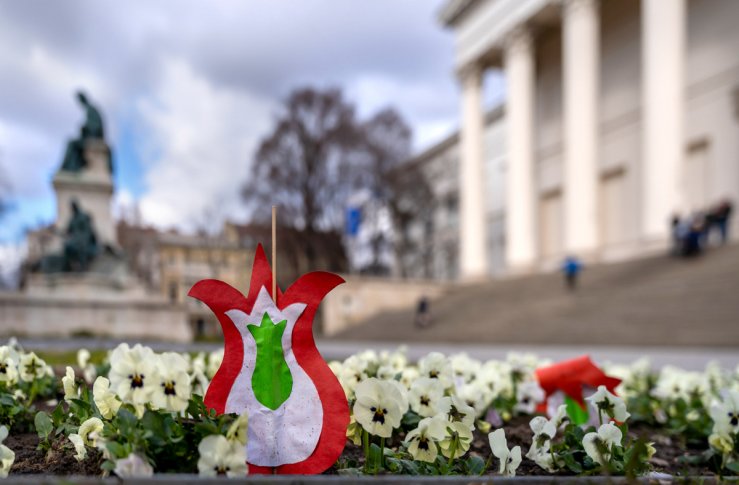
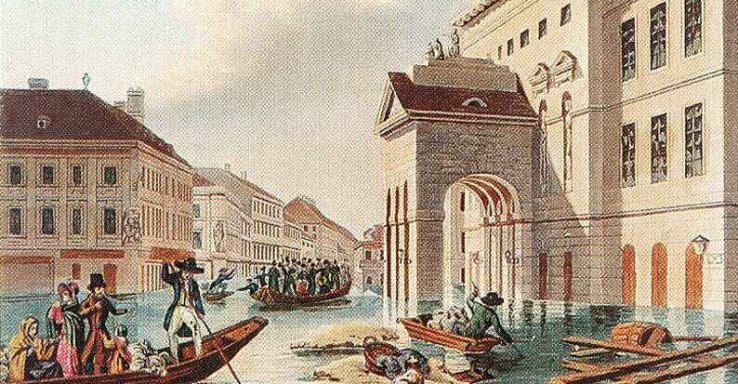
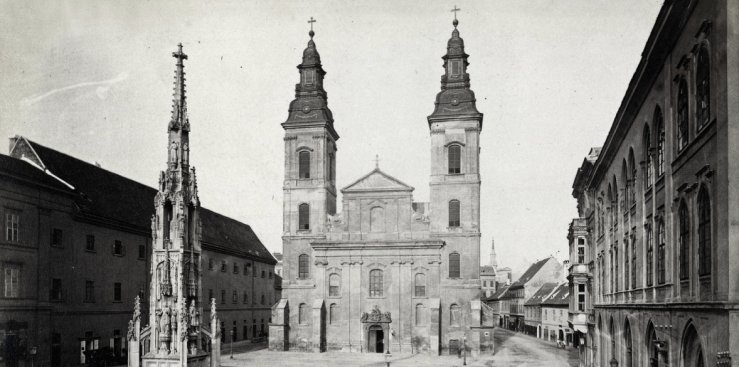
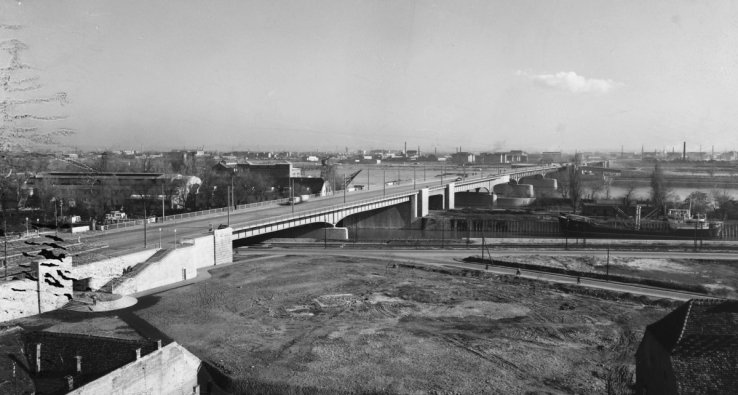
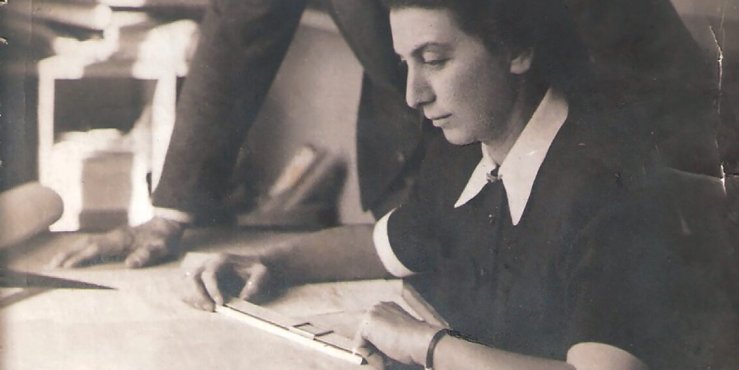
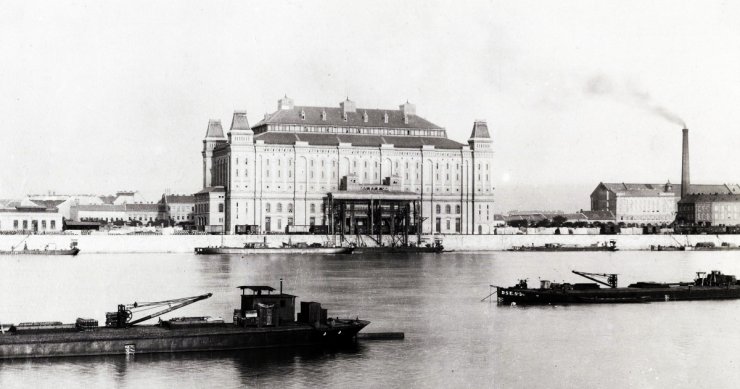
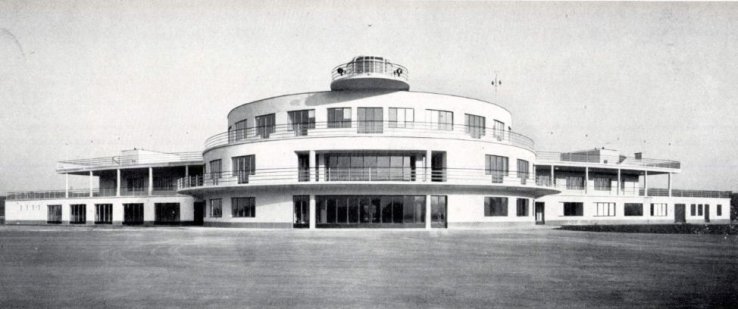
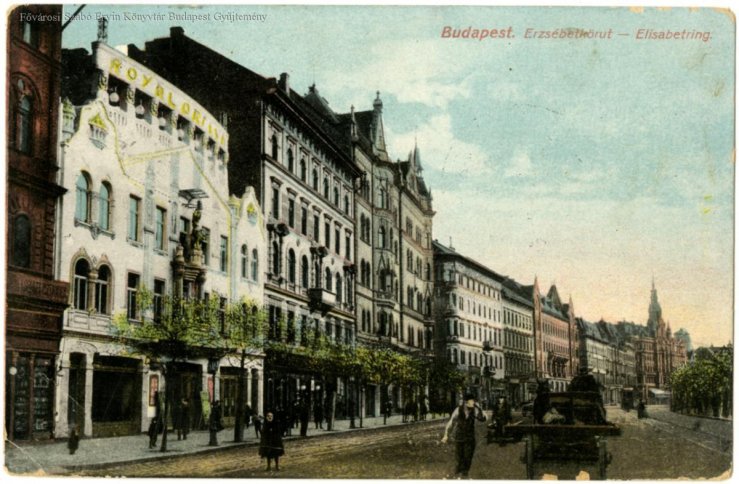
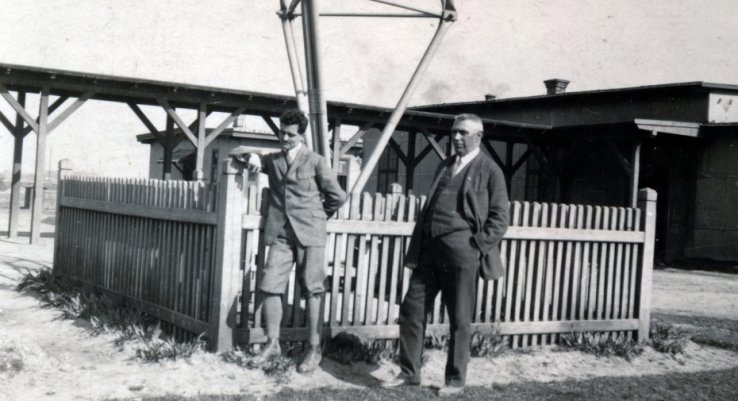
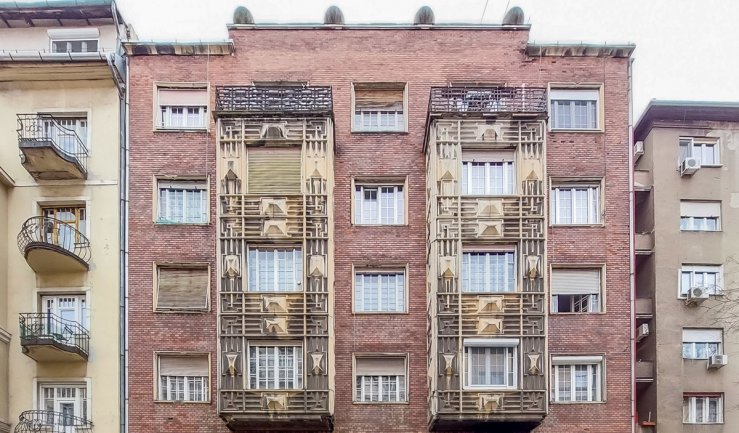
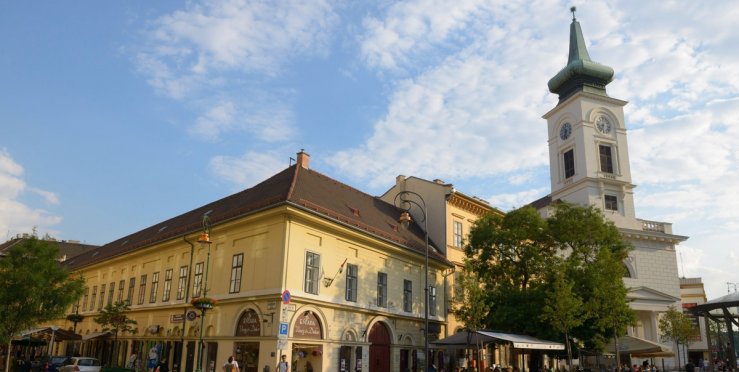
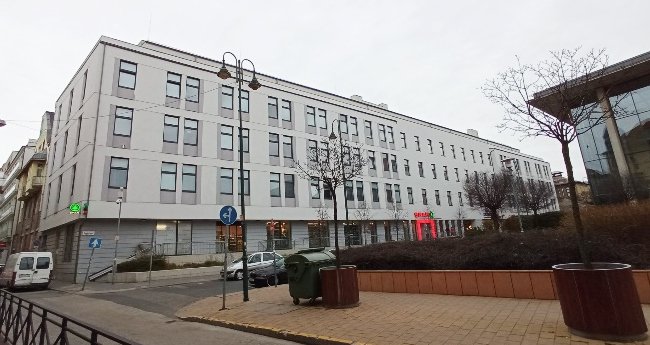
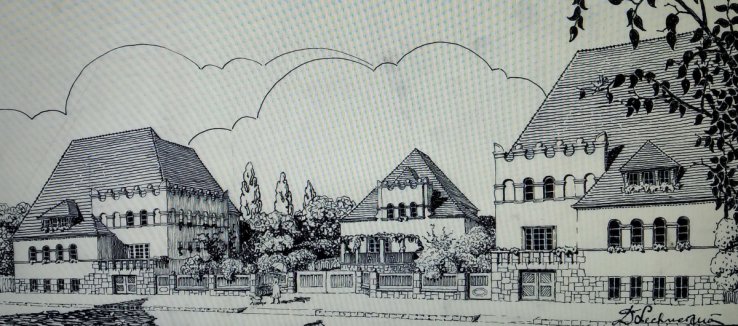
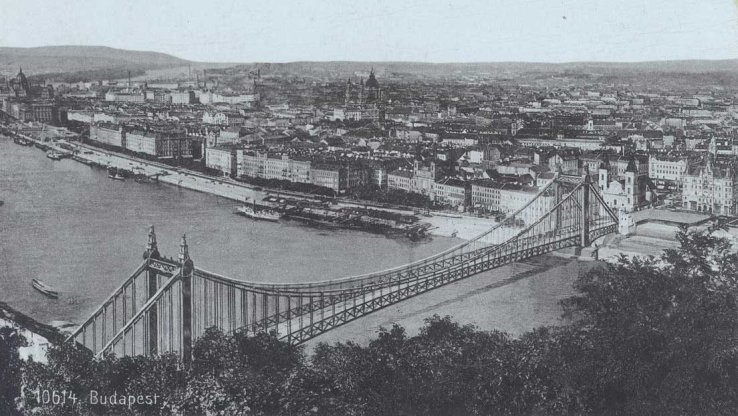
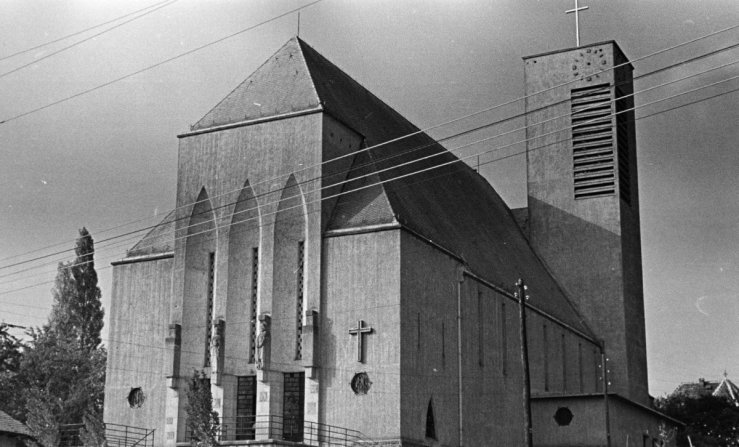
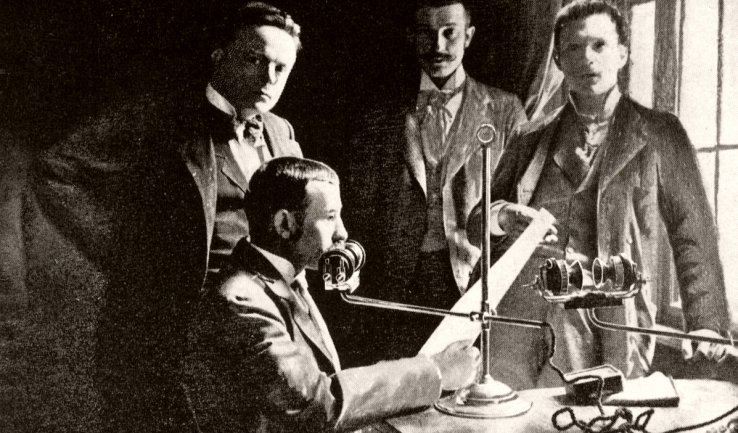

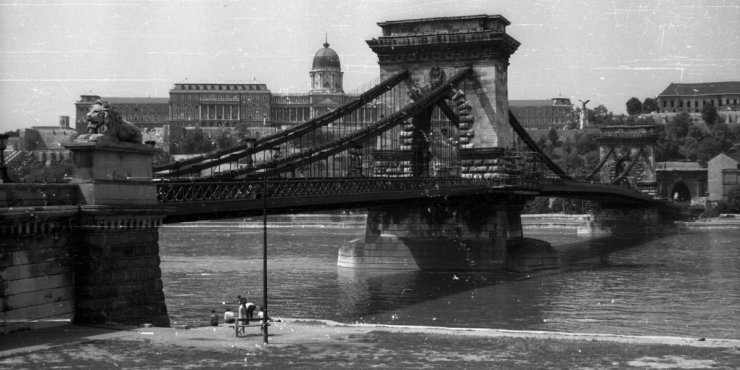
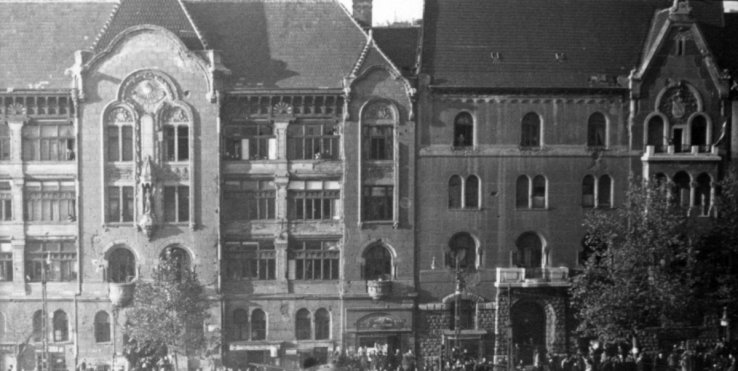
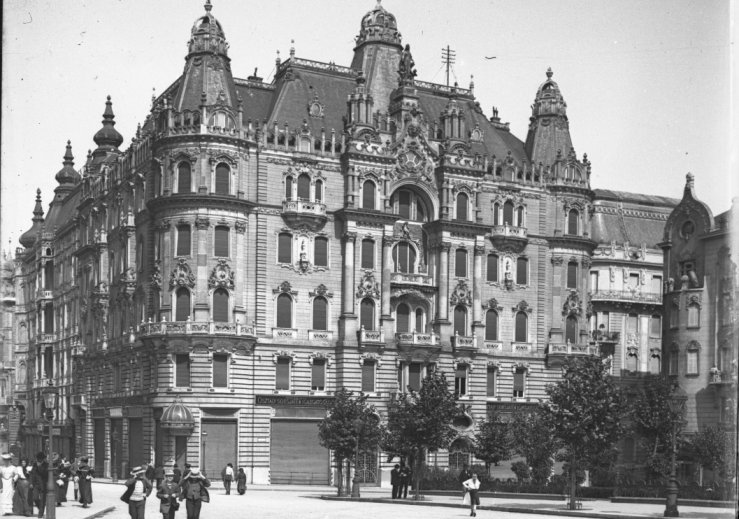
Hozzászólások
Log in or register to comment!
Login Registration